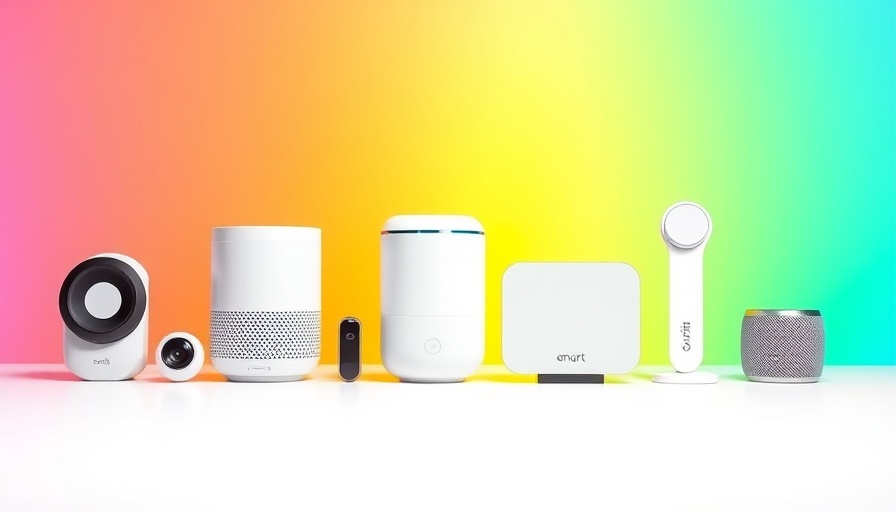
What Is the Matter Smart Home Standard?
The Matter standard represents a significant leap in smart home technology, unifying various devices from leading manufacturers into a single interoperable framework. By allowing devices to communicate across different platforms seamlessly, it offers consumers the flexibility to choose their preferred voice assistant without worrying about compatibility issues. For example, if you purchase a Matter-supported smart bulb, you can easily integrate it into Apple’s HomeKit, Amazon's Alexa, or Google Assistant, empowering users with the freedom to mix and match as they see fit.
Why Matter Matters: Bridging the Gap in Interoperability
The rise of smart home devices was initially hampered by the fact that products from different brands often could not work together. Tech giants like Amazon, Apple, and Google have stepped in to solve this by backing Matter, showcasing their commitment to a consumer-friendly approach. The introduction of Matter aims to break down the silos created by proprietary technologies, allowing consumers to purchase devices with confidence, knowing they will work within their existing smart home setups.
Experience the Evolution: From Project CHIP to Matter 1.4
Originally known as Project CHIP (Connected Home over IP), Matter was formally launched in 2022 to replace the confusing landscape of smart home standards. The latest specifications, Matter 1.4 and 1.4.1, enhance user experience by offering improved setup procedures through QR codes and Near Field Communication (NFC), allowing for hassle-free installations. This means that getting your smart devices up and running no longer requires extensive technical acumen.
Current Devices Compatible with Matter: A Changing Landscape
With Matter's backing by major players in the tech industry, a myriad of devices are being recalibrated to align with this standard. Smart appliances, lighting, thermostats, and security systems are all adapting to accommodate Matter, paving the way for comprehensive smart home integration. This compatibility not only enriches the user experience but also bolsters the market by expanding the range of devices available to consumers.
Future Predictions: What Lies Ahead for Smart Home Standards
As we move into a more connected future, the impact of Matter could change the smart home landscape considerably. Predictions suggest that as Matter gains traction, the standard may lead to a reduction in proprietary platforms and a more united approach to smart device compatibility. This shifts the control back into the hands of consumers, making it easier than ever to customize their smart ecosystems without the friction traditionally experienced.
Conclusion: The Importance of Matter in Your Smart Home Design
For executives and decision-makers in tech and beyond, understanding Matter is crucial in delivering products that meet modern consumer expectations. The shift towards interoperability not only enhances user satisfaction but also provides market-relevant insights for companies developing smart home technologies. As Matter continues to grow and evolve, it will play a fundamental role in shaping the future of connected devices.
 Add Row
Add Row  Add
Add 




Write A Comment